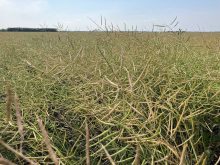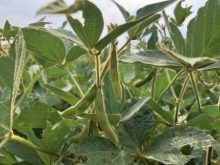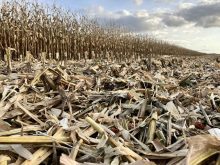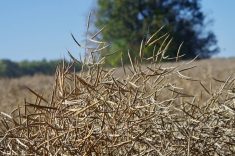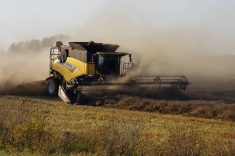CNS Canada — ICE Futures Canada canola contracts moved lower during the week ended Wednesday, but held above major support as prices remain relatively cheap compared to other oilseeds.
Fund traders adding to short positions were behind much of the weakness in canola, although traders said the net short position was reaching the point that further selling should be slowing down.
Attention is also focused on yield prospects across both the U.S. and Canada. The U.S. Department of Agriculture releases updated production estimates on Aug. 12, and market participants will be adjusting positions ahead of the report.
Read Also

U.S. grains: Chicago soybeans dip in choppy trading as Greenland dispute and global supply weigh
Chicago | Reuters – Chicago corn and soybeans slipped in choppy trading on Tuesday as tensions between Washington and Europe…
While private forecasts are pointing to large U.S. soybean yields, the August USDA report often fails to meet those expectations, according to Ken Ball of PI Financial in Winnipeg.
If that happens, and the carryout projections are lowered, it could take some traders by surprise, he added.
Beyond the USDA report, crop conditions remain relatively favourable across North America as a whole, but are still far from perfect, said Ball. Some areas are getting too much rain, and he estimated the weather over the past few weeks likely cut into the overall Canadian canola crop by at least five per cent.
In addition, “even if we have a huge crop coming, there’s not one rationale that I can think of for reducing the level of consumption on the coming year,” said Ball, noting canola is still relatively cheap.
While an 18 million-tonne crop would be large, demand could easily top 19 million tonnes. That demand will need to be rationed at some point, but that rationing could be months away, said Ball.
Any adjustment in price would only be in relation to soybeans, which means that canola could still go down and be considered expensive if soybeans post larger losses, he added.
— Phil Franz-Warkentin writes for Commodity News Service Canada, a Winnipeg company specializing in grain and commodity market reporting.





